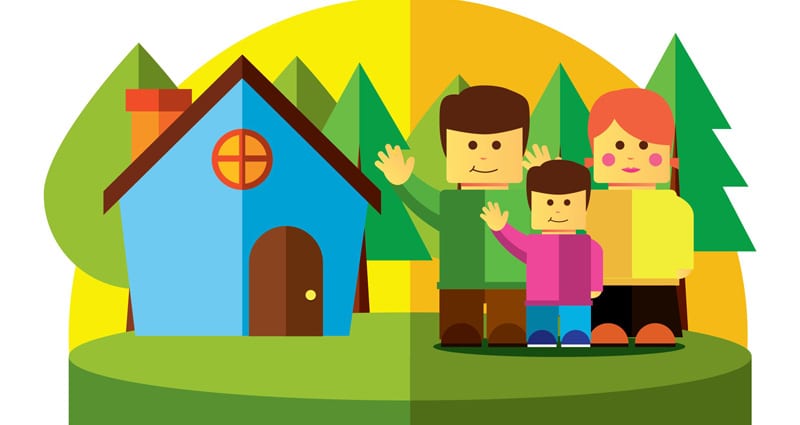Consultant Parenting

What are we looking for as we raise our children? What are we hoping to facilitate and encourage as we function as therapists and work with children and adolescents in our practice? What constitutes a healthy child?
- Is it a developing ability to think for themselves?
- Is it making good choices for the most part?
- Is it feeling passionate about a handful of things?
- Is it displaying a sense of responsibility?
- Is it evidence of a sense of kindness and consideration toward others?
- Is it learning to know themselves?
- Is it developing good health habits?
- Is it establishing a spiritual belief system that feels like their own?
What can we do as parents and therapists to help a child develop these qualities that we might agree constitute a healthy sense of self?
I recently read two parenting books that resonated with the notions I have developed over the years, through raising my own children and in working with child and adolescent clients. The coauthors are Foster Cline, MD and Jim Fay. The books are titled, “Parenting with Love & Logic,” and “Parenting Teens with Love & Logic.”
In the books, the authors describe three types of parenting styles that do not seem to work well – ‘helicopter parenting,’ ‘drill sergeant parent,’ and ‘laissez-faire parenting.’ The first one is too hands-on, the second one is too harsh and directive, and the third is too hands-off. Like “Goldilocks and the Three Bears” – how do we attempt to achieve a stance as a parent that will feel, ‘just right?’ Or, at least ‘good enough?’
It seems most useful if we can help build into our children, from an early age, the ability to know themselves and make as many of their own decisions as possible along the way. Their time with us is a safe opportunity, over the course of many years, to ‘try on’ a variety of different things and develop a sense of what suits them. Giving our children the opportunity, as often as possible, to choose their own clothing, to decide for themselves whether or not to bring a jacket, or to select a sport they would like to participate in, all help to develop a sense of their own thinking and unique style in life. If we make most decisions for them over the course of their childhood, they will leave home ill prepared to handle life on their own.
We want to establish ourselves as ‘consultants’ that our children feel safe and comfortable checking in with when they face a dilemma or have questions about life. We want to make ourselves available to brainstorm options. When we think out loud with our children and help them come to their own conclusions, we encourage the development of logical thinking. We want to avoid becoming overbearing, expressing strong opinions, or becoming invested in a particular outcome. If we can contain our own anxiety, entertain their notions in a fairly neutral and thoughtful manner, they will continue to run things by us and benefit from our adult wisdom and experience. This system works extremely well, but requires self-discipline and restraint on the part of the parent, something that is challenging to achieve at times. It may be helpful to remember in these moments that when we were growing up, we learned the most about life from our mistakes, and from what was modeled (and not necessarily spoken) by our parents day in and day out.
We can learn another important lesson from the tale of the “Three Bears:” we each have our own sense of whether a bed is ‘too soft’ or ‘too hard’ or ‘just right’ for us. There are so many things in life that cannot be reduced to right or wrong, but that are a matter of personal preference. Being okay with a messy room or really liking a clean and orderly room, or leaving things to the last minute or preparing in advance – are often embedded personality traits. Can we encourage and allow our children to develop their own style in life, their own preferences? Can they develop their own ‘quirks’ or do we insist they follow our established ways of doing things – what we have decided is the ‘right’ way – because it suits us?
Can we allow our ‘little bears’ to crawl into some different life scenarios, try them on for size, and decide for themselves what works best? If we can, it will actually save us a lot of grief, and ultimately facilitate the development of the good things we hope to see in our offspring.
We all want to be taken seriously. If we can begin to do that with our children from a very early age, they will take themselves seriously, trust their own thinking, and get on with the task of making a unique contribution in life.
As obvious as this seems, it is very difficult at times to allow our children to learn for themselves. It is so tempting to want to help them prevent mistakes and stay out of trouble. But feeling the weight of the consequences of their decisions, when the stakes are still relatively low in childhood, is an invaluable way to help prepare them for adulthood. Surviving a day at school without a lunch – because they left theirs at home on the kitchen counter – is not life threatening and will encourage responsible behavior in the future.
So, put on your ‘consulting caps,’ sit back, and make room for your children to develop into creative, passionate, unique individuals. It will happen if your relationship scale with them throughout childhood is light on criticism, shaming, and overbearing opinions, and weighs in heavily with love, support, and positive regard.
Published in Relationship
Responses